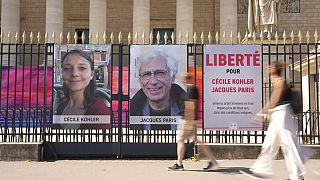Africa
Till today, the deadly and rampaging coronavirus was known as the 2019-nCoV. That was a temoral name as the World Health Organisation, WHO, worked on getting it an official name as should be the case.
During his daily briefing on February 11, over 40 days since the virus broke out, the WHO Director-General Tedros Adhanom Ghebreyesus announced the official name as COVID-19.
Explaining the reasons behind the decision and the new name, he said: “We had to find a name that did not refer to a geographical location, an animal, an individual or group of people, and which is also pronounceable and related to the disease.”
“Having a name matters to prevent the use of other names that can be inaccurate or stigmatising. It also gives us a standard format to use for any future coronavirus outbreaks.”
We now have a name for the disease caused by the novel coronavirus: COVID-19.
Having a name matters to prevent the use of other names that can be inaccurate or stigmatizing. #COVID19https://t.co/HTNjm27BHw
— Tedros Adhanom Ghebreyesus (@DrTedros) February 11, 2020
The coronavirus (now COVID-19) has killed more than 1,000 people with the majority of infections in mainland China. It broke out in the city of Wuhan in the Hubei province, the city was subsequently put on lockdown.
Whiles it continues to spread to other parts of the world, Africa has been spared this far. Over thirty suspected cases have all turned out negative after tests.
The WHO Africa region and the African Union’s Center For Disease Control, CDC, has ramped up efforts to ensure that capacity of countries are boosted in readiness in case the virus is detected on the continent.
Last week the African CDC conducted training in Senegal with 12 countries, using tests sent by WHO. Further training will take place in South Africa next week. Initially, only Senegal and South Africa had the capacity to run tests but that has since changed.
The 13 top priority in the African region are: Algeria, Angola, Cote d’Ivoire, the Democratic Republic of the Congo, Ethiopia, Ghana, Kenya, Mauritius, Nigeria, South Africa, Tanzania, Uganda and Zambia
“Another shipment of 150,000 #2019nCOV tests is being assembled in Berlin today & is destined for over 80 labs in all regions.
Last week theAfricaCDCconducted training in ?? with 12 countries, using tests sent by WHO. Further training will take place in ?? next week"-DrTedros— World Health Organization (WHO) (@WHO) February 10, 2020
The virus has infected over 43,000 people and its death toll has already surpassed that of the SARS outbreak in 2003. At the epicentre of the outbreak in Hubei province, two health officials were fired, Chinese state media said. The move comes after an outcry over the handling of the outbreak.
It also follows the death of doctor Li Wenliang who had given an early warning about the virus fuelling further criticism of Chinese officials.
Everyone's been calling it #coronavirus. But now it has an official name: COVID-19
Find out more: https://t.co/icKCbaqEIJ pic.twitter.com/iuMltz1ye5
— euronews (@euronews) February 11, 2020













01:04
South Africa reports new bird flu outbreak on poultry farms
Go to video
Paraguayan town celebrates vibrant Kamba Ra'anga festival with masks, fire and tradition
Go to video
Over 40 killed in attack on Sudanese hospital: WHO Chief condemns “Appalling” strike
Go to video
What to know about the COVID variant that may cause 'razor blade' sore throats
Go to video
China, Egypt FMs discuss Middle East escalation in phone call
01:47
Chinese city of Xuchang is world's biggest producer of wigs